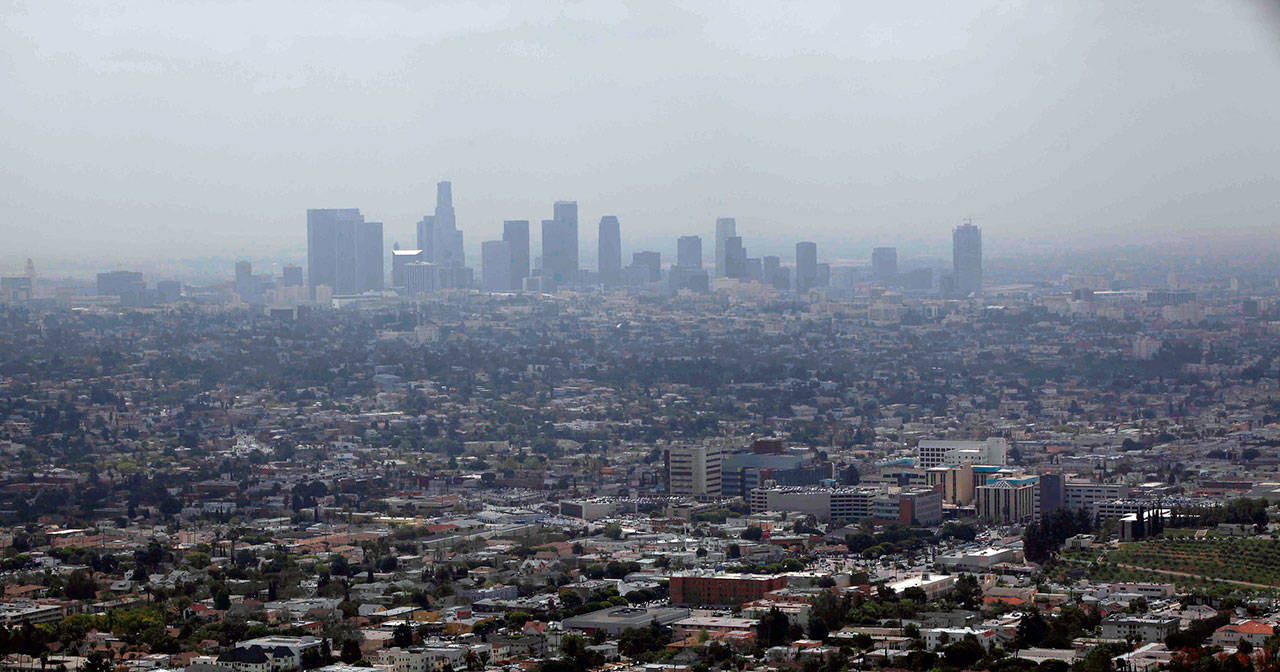By The Herald Editorial Board
If Scott Pruitt, head of the Environmental Protection Agency, is finding it hard to breathe amid multiple accusations of ethics violations and misuse of taxpayer funds, we can relate: Pruitt’s continued push for deregulation and his favors to industry threaten to foul the air we all breathe.
Among investigations of thousands of dollars spent on first-class plane tickets, a security detail for a family vacation at Disneyland, and below-market rent of a lobbyist’s condo, Pruitt now is under scrutiny for bypassing a White House decision that declined pay raises for two aides, The Atlantic has reported. Pruitt used a program meant to hire experts to implement the Safe Drinking Water Act to reappoint the staffers — former aides from his days as Oklahoma’s attorney general — to handle their original duties but at vastly higher wages.
President Trump’s statement of support for Pruitt on Tuesday was less than convincing: “I hope he’s going to be great.”
But regardless of who’s running the EPA in the coming weeks, it’s imperative that a coalition of states — including Washington state — keep up their challenges to Pruitt’s record of attempted deregulation and foot-dragging on federal mandates in regard to clean air and clean water.
Washington Attorney General Bob Ferguson on Thursday announced the latest lawsuit. Joined by 13 other states, Ferguson filed suit against Pruitt for violation of the Clean Air Act for his agency’s refusal to limit emissions of methane and other greenhouse gases from oil and gas facilities, such as drilling and pipeline operations.
Oil and gas facilities are the largest emitters of methane, which has more than 80 times the global-warming potential of carbon dioxide. Failing to implement the guidelines, Ferguson said in a release, will cause harm to state residents by releasing dangerous pollutants into the atmosphere and further contribute to the risks of climate change and extreme weather events, including drought and flooding.
The EPA adopted a rule in 2016 that limited the emissions of methane and other pollutants from new and modified oil and gas facilities, which — under the Clean Air Act — were supposed to be followed by guidelines that would have limited emissions from existing facilities. Pruitt last year halted the process without explanation and has since refused to complete the mandate to complete the work.
Pruitt is getting back some of what he gave. As Oklahoma’s AG, Pruitt, joined by other Republican state AGs filed suit against the EPA more than a dozen times, and was mostly unsuccessful.
“Are Democratic AGs using that same playbook? Yes,” Ferguson told Energy and Environment News last August. “Although I would add we are having greater success than the Republican AGs did.”
That suit follows the promise of another this week from California Attorney General Xavier Becerra and many of the same states — Washington included — after the EPA took steps to revoke Obama-era standards for motor vehicle mileage and challenge California’s long-held right to set its own emission and mileage regulations, which Washington and other states have adopted as their own.
The standards the EPA wants to revoke would have required automakers to meet fleet-wide averages of 50 miles per gallon by 2025 for cars and light trucks, a standard Pruitt called “too high” and automakers have sought relief from.
But it’s a standard that was set through discussions in 2009 with the auto industry, the EPA, the National Highway Traffic Safety Administration and state environmental agencies, which resulted in standards in 2012 that have required increasingly tougher mileage targets. Along with reducing dependence on foreign oil, the standards were meant to reduce the levels of nitrogen oxide and other smog-forming pollutants that trigger asthma and other health problems in millions of Americans.
Anticipating the EPA’s move, last year the attorneys general for several states sent Pruitt a letter warning him not to roll back the mileage standards and reminding him that a year earlier the EPA had concluded after a review that the standards were achievable “at a reasonable cost” for automakers and would result in significant economic and environmental benefit to consumers.
“There are at least three separate reports by scientists, engineers and other experts analyzing the standards and concluding they are feasible,” the attorneys general stated.
Following Trump’s election — and Pruitt’s appointment to the EPA — the auto industry must have sensed an opportunity to claw back some of the ground that is in its ability to meet, preferring profits to consumer benefits.
If Pruitt, or whoever is leading the EPA, won’t hold automakers and oil and gas companies to those standards, the alliance of states need to make sure the agency complies with the duty that its own name makes clear: environmental protection.
Talk to us
> Give us your news tips.
> Send us a letter to the editor.
> More Herald contact information.

























